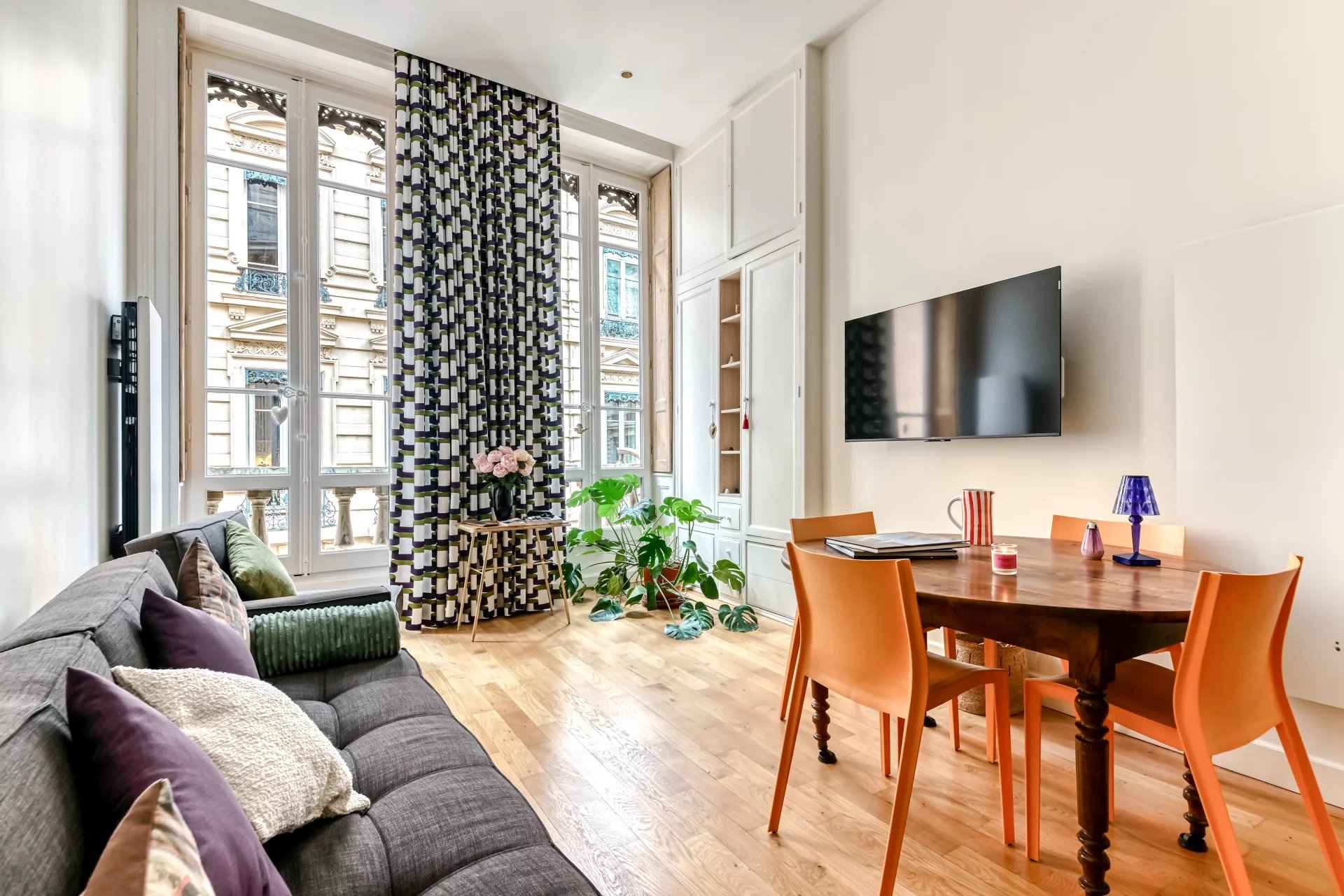2025-09-30
Limitation to 90 days for tourist rentals of primary residences in Lyon starting in 2026
Tourist rentals of primary residences in Lyon will undergo a major change starting January 1, 2026. In a decision made on June 26, 2025, the City of Lyon decided to reduce the annual rental limit for furnished tourist accommodations declared as primary residences from 120 to 90 days per year. This decision is part of the Le Meur-Echaniz law, which strengthens the regulation of tourist rentals throughout France. This change will directly impact owners and investors, as well as all those involved in tourist rentals, by imposing new rules that must be followed in order to remain compliant with regulations. Here is an overview of the situation.
.jpg)
Why is the City of Lyon Reducing the Cap on Tourist Rentals?
The reduction of the tourist rental cap to 90 days is explained by several factors linked to the dynamics of the Lyon housing market.
Responding to the Continuous Rise in Tourist Rentals
Since the implementation of the tele-declaration system for tourist rentals in 2018, more than 14,000 properties have been registered in Lyon, nearly 75% of which are primary residences. Despite stricter regulations adopted by the Metropolis in 2022, tourist rentals have continued to grow, representing almost one-third of overnight stays in 2023.
The previous cap of 120 days—the highest in Europe for primary residences—encouraged the professionalization of certain tourist rentals and led to an excessive concentration of such properties in central neighborhoods such as Presqu’île, Vieux Lyon, La Guillotière, Lyon Part-Dieu, and Brotteaux. This situation generated nuisances for residents and transformed local commerce, favoring tourism-related activities.
In this context, reducing the rental cap to 90 days aims to better regulate tourist activity and preserve residents’ quality of life while maintaining sufficient housing availability for Lyon’s population.
This measure aligns with a national trend of regulating tourist rentals, already underway in cities like Paris, Marseille, and Avignon. It helps to distinguish occasional rentals from professional ones, ensuring a sustainable balance between tourism and residential life.
Preventing Fraudulent Declarations and the Professionalization of Rentals
The previous 120-day cap encouraged an activity close to professional rental, both in its management methods and income levels. At that threshold, rental income often exceeded that of traditional leases, creating incentives to declare properties as primary residences even when primarily used for tourist purposes.
Limiting rentals to 90 days also aims to reduce the risks of fraud and misuse of the primary residence status, thereby protecting the housing stock intended for permanent residents and preserving the balance of Lyon’s housing market.
Note:
This 90-day cap applies even to properties properly declared as primary residences. It is in addition to existing obligations such as registration with the municipality, compliance with urban planning rules, and, where applicable, restrictions set by condominium bylaws.
A Stricter Legal Framework for Tourist Rentals
Law no. 2024-1039 of November 19, 2024, introduces several regulatory tools to govern tourist rentals. Among these are the possibility for municipalities to limit the maximum rental duration of primary residences and the implementation of quotas to control the total number of tourist rentals in their territory.
The law also strengthens tax obligations for tourist rentals, with reduced allowances. For owners of classified tourist accommodations and guesthouses, the tax allowance decreases from 71% to 50%, with the income cap reduced to €77,700 (down from €188,700). For unclassified tourist rentals, the allowance falls from 50% to 30%, with a cap of €15,000 (instead of €77,700).
These provisions aim to encourage long-term rentals and preserve housing for permanent residents.
What Are the Consequences for Property Owners and Investors in Lyon?
The 90-day annual limit will directly impact revenues from tourist rentals. Owners will need to recalculate the profitability of their properties and consider alternatives to offset the reduction in rentable days.
Anticipating the Impact for Investors and Owners
From January 1, 2026, owners of primary residences in Lyon must comply with this 90-day cap to continue renting legally for tourist purposes. Investors and property managers should anticipate these changes, adapt their strategies, and optimize profitability while remaining compliant with the regulations.
Real estate professionals—agents, wealth advisors, or property managers—will play a key role in informing and guiding owners through this transition, incorporating the limitation into their recommendations and financial planning.
How BARNES Lyon Can Support You
As regulations on tourist rentals evolve, expert guidance becomes essential to secure your projects.
BARNES Lyon offers recognized expertise in high-end real estate and investment. Our teams provide:
- Continuous regulatory monitoring: We track decisions from the City of Lyon, the Metropolis, and legislative developments so you are always up to date.
- Detailed profitability analysis: We recalculate the impact of the new cap on your rental income and provide detailed simulations.
- Personalized strategic advice: Depending on your situation, we help you choose between regulated tourist rentals, long-term rentals, or traditional furnished rentals.
- Comprehensive wealth management support: We integrate these regulatory changes into a long-term view of your assets, including tax optimization, inheritance planning, and investment diversification.
- An international network of buyers and investors: Ideal if you are considering selling or repositioning in the market.
With BARNES Lyon, you benefit from tailored advice at the intersection of local expertise and a global vision of the high-end real estate market.
What Alternative Strategies Are Possible?
Tourist rental revenues will decrease compared to those allowed up to 2025. It is advisable to recalculate property profitability and adjust investment strategies.
In response, several options can be considered:
- Prioritizing long-term rentals,
- Restricting seasonal rentals to specific periods, or
- Diversifying investments in properties outside high-tourism areas.
Conclusion: Turning a Constraint into an Opportunity!
The limitation of tourist rentals for primary residences in Lyon to 90 days marks a significant shift in the local regulatory framework. It should not be seen merely as a restriction but as a strong signal: the Lyon rental market is evolving, and adaptation is necessary now.
For owners and investors, this is the opportunity to rethink projects, adjust strategies, and secure income while remaining compliant. At BARNES Lyon, we understand that real estate is more than just an investment. It is a life project, sometimes a legacy, always an asset deserving attention and expertise.
Our role is to accompany you step by step: analyze the impact of this new regulation on your property, recalculate its profitability, explore the best rental options, and help you make the right decisions for the future.
Contact our BARNES Lyon experts today to anticipate this evolution and build a sustainable, profitable rental strategy in the Lyon region.

.jpeg)

